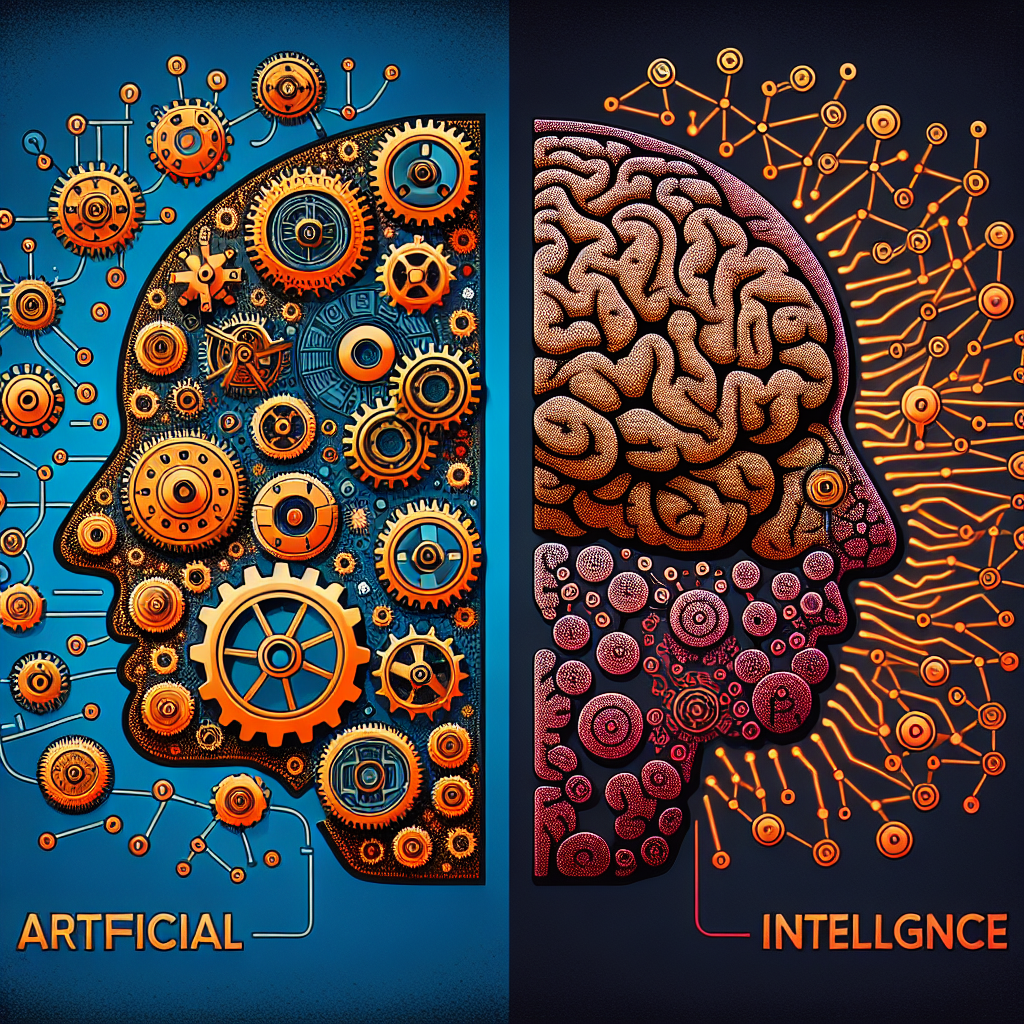Artificial intelligence (AI) and artificial general intelligence (AGI) are two terms that are often used interchangeably, but they actually refer to two distinct concepts with different implications for the future of technology and society. In this article, we will explore the differences between AI and AGI, as well as the potential implications of each for our world.
AI vs. AGI: Understanding the Differences
AI refers to the field of computer science that focuses on creating machines that can perform tasks that typically require human intelligence, such as visual perception, speech recognition, decision-making, and language translation. AI systems are designed to perform specific tasks within a limited domain, and they rely on algorithms and data to make decisions and predictions.
On the other hand, AGI refers to the development of machines that can perform any intellectual task that a human can, across a wide range of domains. AGI systems are designed to be general-purpose and adaptable, with the ability to learn from experience, reason, and solve complex problems in new and unfamiliar environments.
One of the key differences between AI and AGI is their level of generalization. AI systems are specialized and optimized for specific tasks, such as image recognition or natural language processing. AGI systems, on the other hand, are designed to be versatile and flexible, with the ability to adapt to new tasks and environments without human intervention.
Another important difference between AI and AGI is their level of autonomy. AI systems are typically designed to operate within a predefined set of rules and parameters, and they require human supervision and intervention to function effectively. AGI systems, on the other hand, are designed to be self-learning and self-improving, with the ability to operate independently and make decisions without human input.
Implications of AI and AGI
The development of AI and AGI has the potential to revolutionize industries, transform economies, and reshape society in profound ways. Here are some of the key implications of AI and AGI for our world:
1. Economic Disruption: The rise of AI and AGI is expected to automate many jobs and tasks currently performed by humans, leading to widespread economic disruption and job displacement. While AI systems are already being used to streamline operations and increase efficiency in many industries, the development of AGI could lead to even greater levels of automation and job loss.
2. Ethical Concerns: The development of AI and AGI raises a number of ethical concerns, including issues related to privacy, bias, accountability, and transparency. AI systems have been criticized for their lack of transparency and accountability, as well as their potential to perpetuate and amplify existing biases and inequalities in society.
3. Security Risks: The increasing reliance on AI and AGI systems in critical infrastructure and decision-making processes raises concerns about the potential for security breaches, cyberattacks, and malicious use of AI technology. AGI systems, in particular, pose a unique security risk due to their ability to operate autonomously and make decisions without human oversight.
4. Human-Machine Interaction: The development of AGI has the potential to blur the lines between humans and machines, raising questions about the nature of consciousness, intelligence, and identity. As AGI systems become more advanced and sophisticated, they may challenge our understanding of what it means to be human and how we relate to machines.
FAQs
1. What is the difference between narrow AI and AGI?
Narrow AI refers to AI systems that are designed to perform specific tasks within a limited domain, such as image recognition or natural language processing. AGI, on the other hand, refers to systems that can perform any intellectual task that a human can, across a wide range of domains.
2. Are AGI systems already in use?
While AGI systems are still largely theoretical and experimental, there are some examples of advanced AI systems that exhibit characteristics of AGI, such as deep learning algorithms and reinforcement learning models. However, true AGI has not yet been achieved.
3. What are the potential benefits of AGI?
AGI has the potential to revolutionize industries, transform economies, and improve the quality of life for people around the world. By creating machines that can perform any intellectual task that a human can, AGI could lead to advances in healthcare, education, transportation, and many other areas.
4. What are the potential risks of AGI?
AGI poses a number of risks and challenges, including job displacement, ethical concerns, security risks, and human-machine interaction. As AGI systems become more advanced and autonomous, they may raise questions about the impact of technology on society and the nature of human intelligence.
In conclusion, the development of AI and AGI has the potential to transform our world in profound ways, with implications for economies, industries, and society as a whole. While AI systems are already being used to automate tasks and improve efficiency in many domains, the development of AGI could lead to even greater levels of automation and job displacement. As we continue to explore the potential of AI and AGI, it is important to consider the ethical, security, and societal implications of these technologies and to ensure that they are developed and deployed responsibly.

